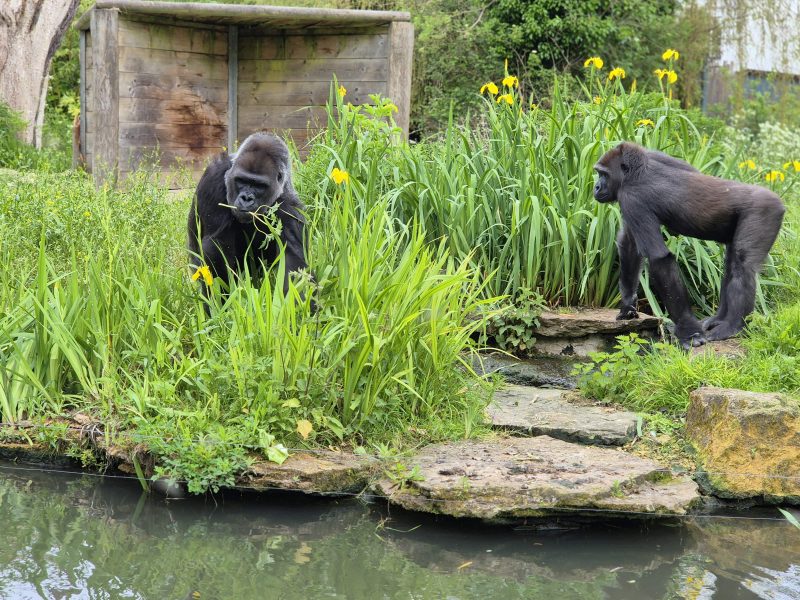A TREE on Gorilla Island at Bristol Zoo Gardens has had to be felled after fears that it could fall and provide the apes with an escape route.
The risk prompted Bristol Zoological Society to issue an urgent five-day notice in September to chop down the weeping willow at the former tourist attraction in Clifton, which was granted by the city council.
Although the zoo closed in 2022, the gorillas remain on site until their new home at the Bristol Zoo Project near Cribbs Causeway is ready.
The tree had succumbed to a destructive parasitic fungus, planning documents showed.
In an email to the council, the zoo’s landscape manager said: “We have recently identified a dead and hazardous willow tree within the gorilla enclosure at Bristol Zoo Gardens.
“A professional survey has highlighted the risks associated with its location next to the gorilla moat.
“Should any part of the tree fail, it could create a bridging risk, allowing the gorillas to escape the enclosure, or damage the electric fencing, which could also lead to an escape.
“Given the potential severity of this situation, I am providing a five-day notice for the tree’s removal.”
Wotton Tree Consultancy’s report said: “Whole tree failure is a possibility given the low wood density of the species type.
“This could then create an escape route for gorillas.
“The tree is now dead and occupying a location in where, should it fail, is likely to bridge the watercourse, and create a potential escape route for gorillas.
“It is my strong recommendation that this tree is removed.”
The zoo will replace the tree with another of the same species.
• Zoo bosses have said that completion of the creation of the new Central African Forest habitat, which will be four and half times the size of the gorilla troop’s accommodation in Clifton, has been delayed after nesting birds were found on a building due for demolition.
They now say the work will be finished by spring 2026. Detailed planning is under way for the transfer of the eight western lowland gorillas to the new site some time next year. The troop will be given some months to get used to their new surroundings before the Central African Forest is opened to the public.
In the meantime, life has continued as normal for the troop. “Their keepers continue to work with them, and they regularly see higher education students, researchers and specially invited guests, so not much has changed from their perspective,” the zoo says.


